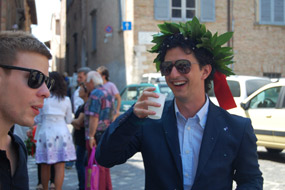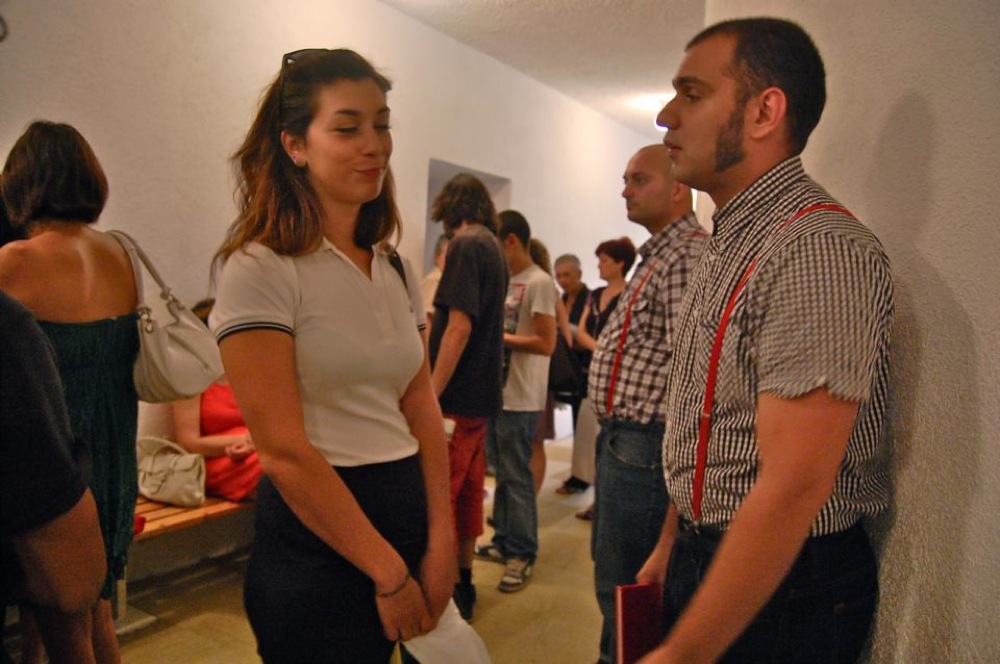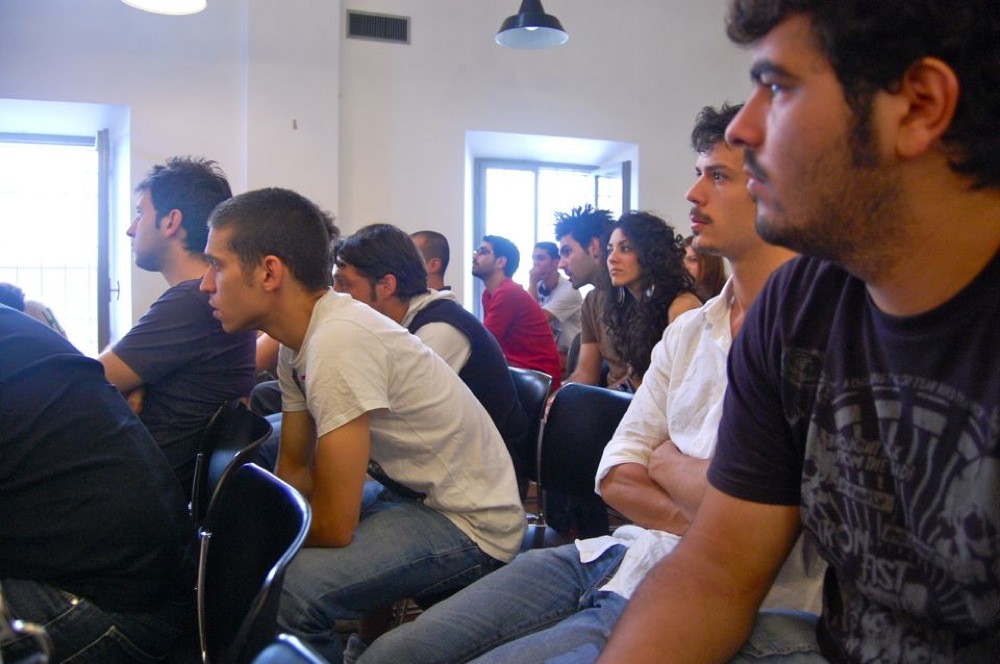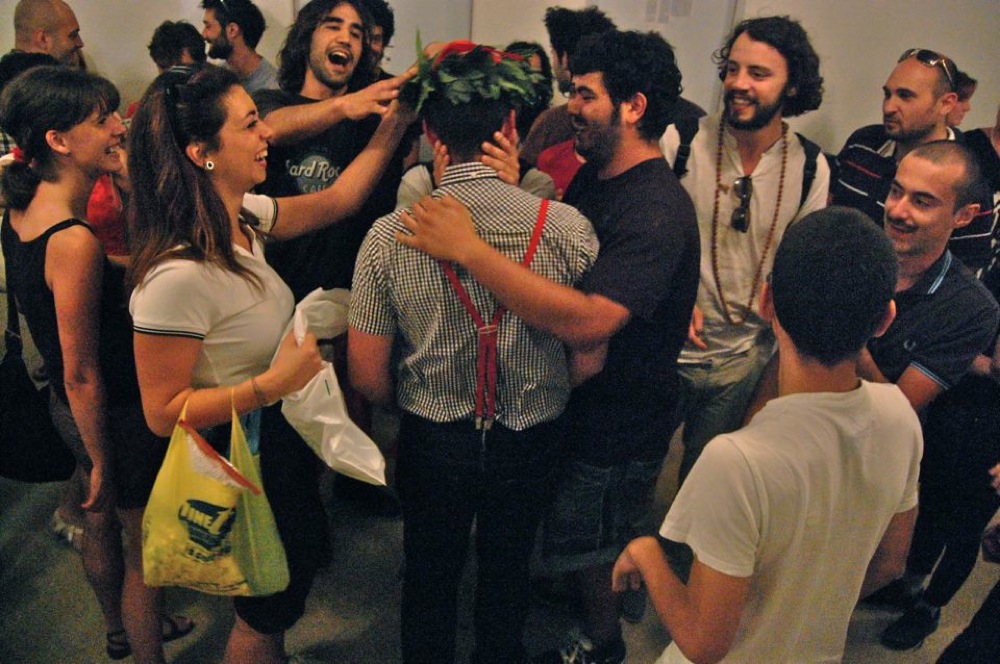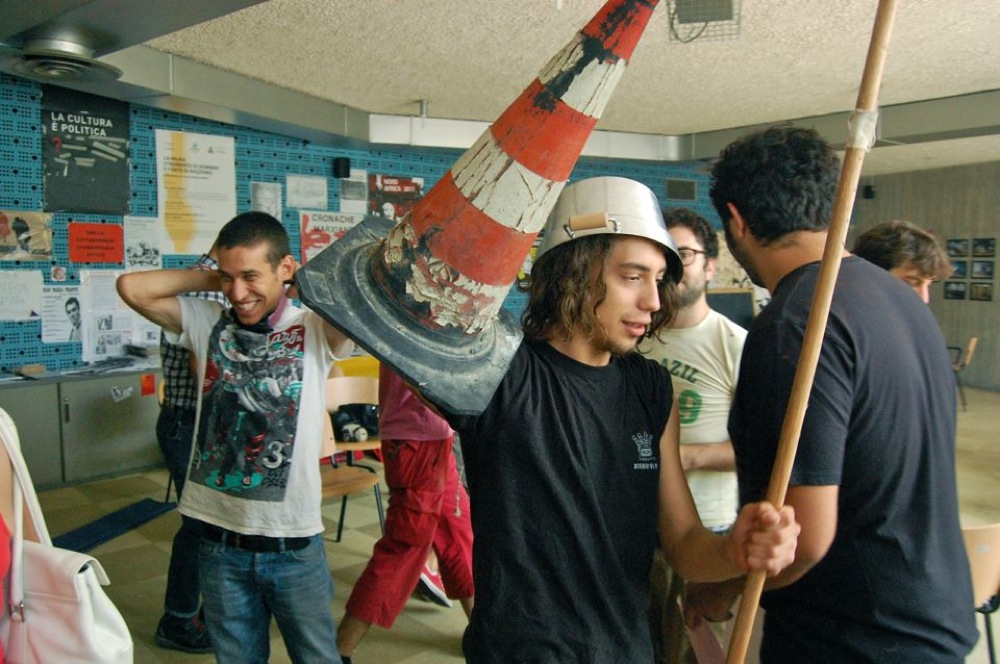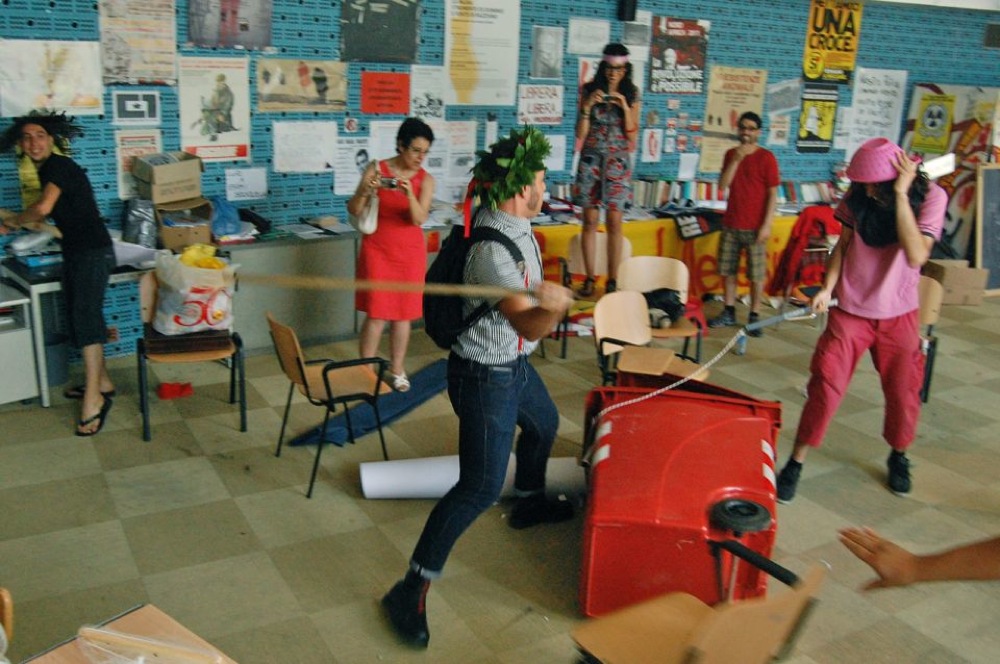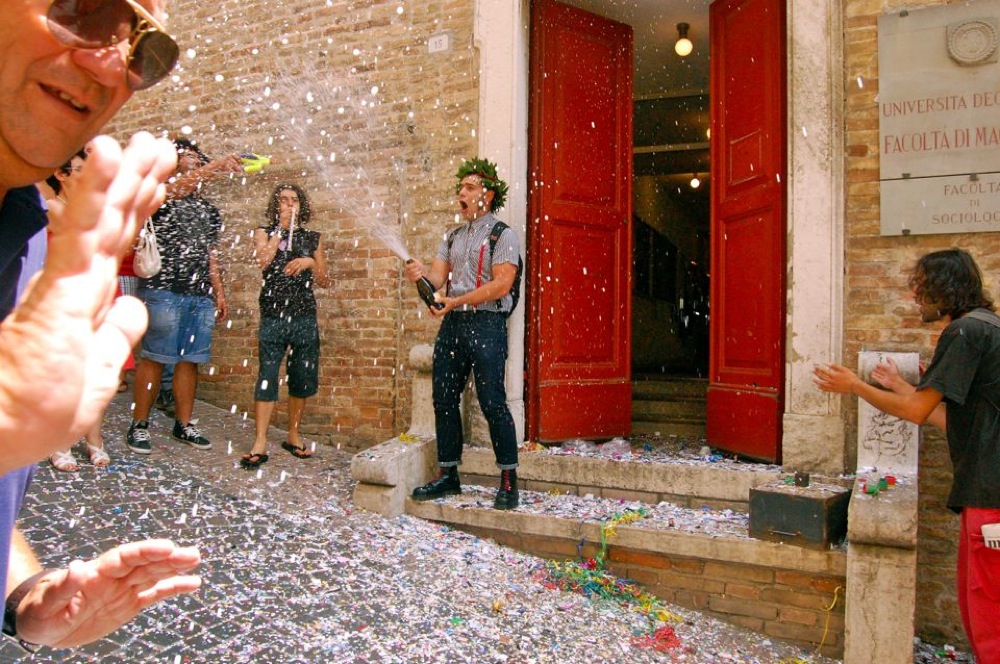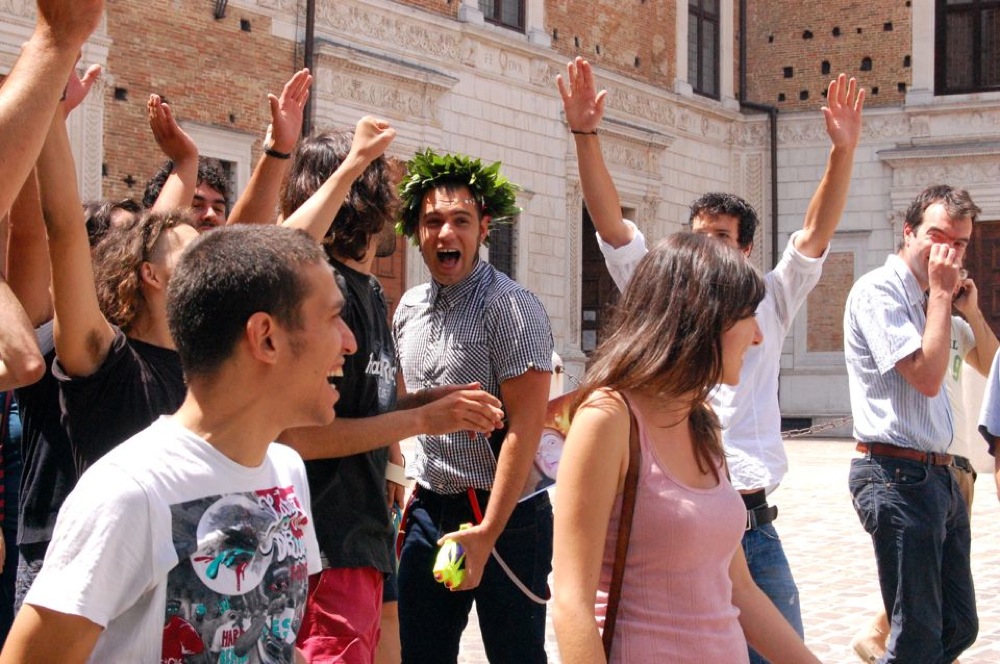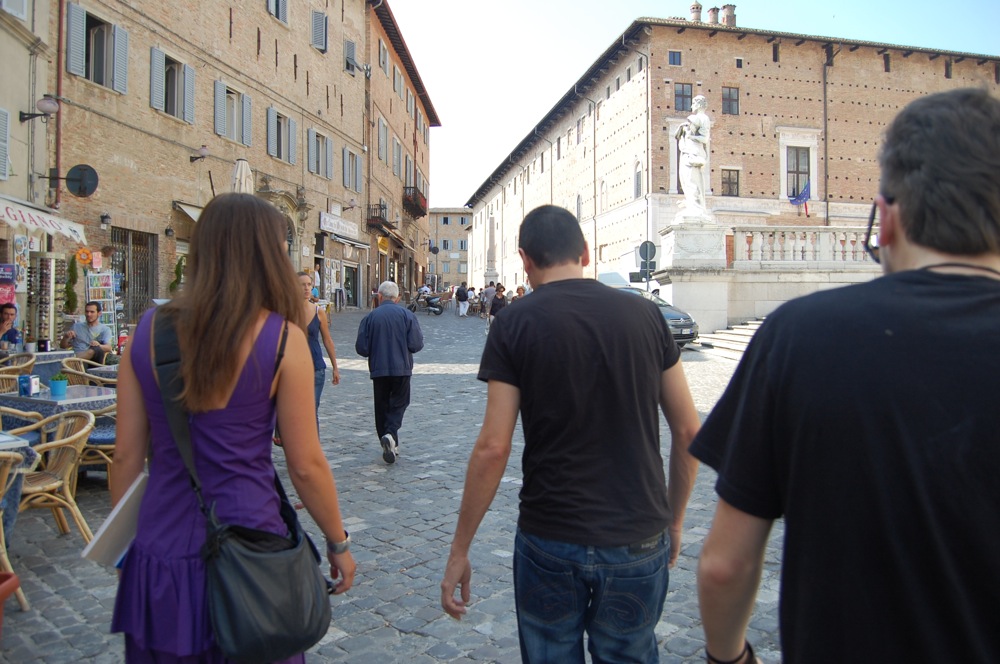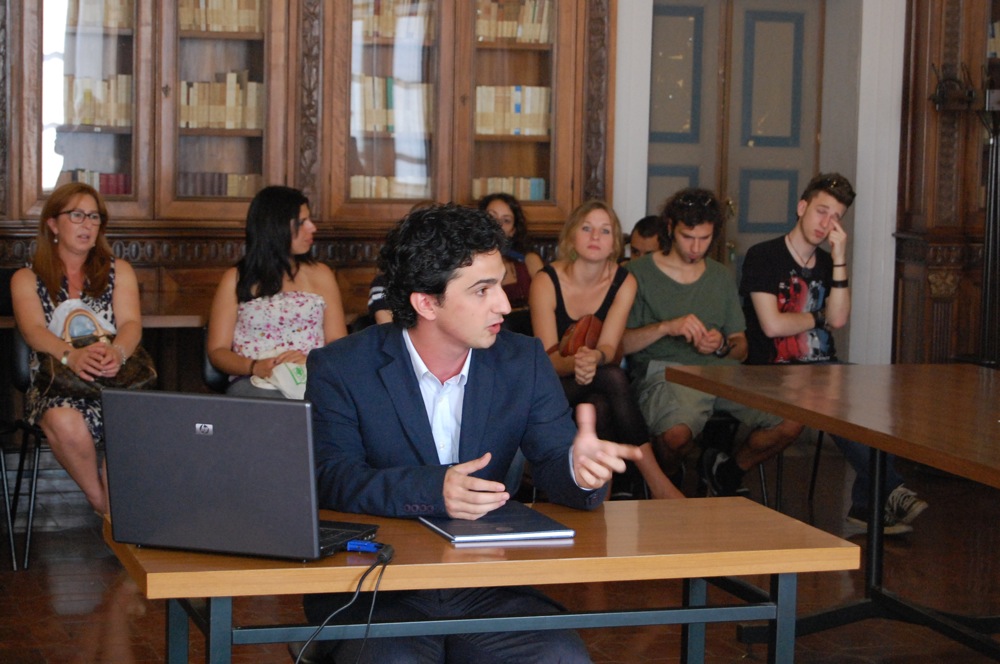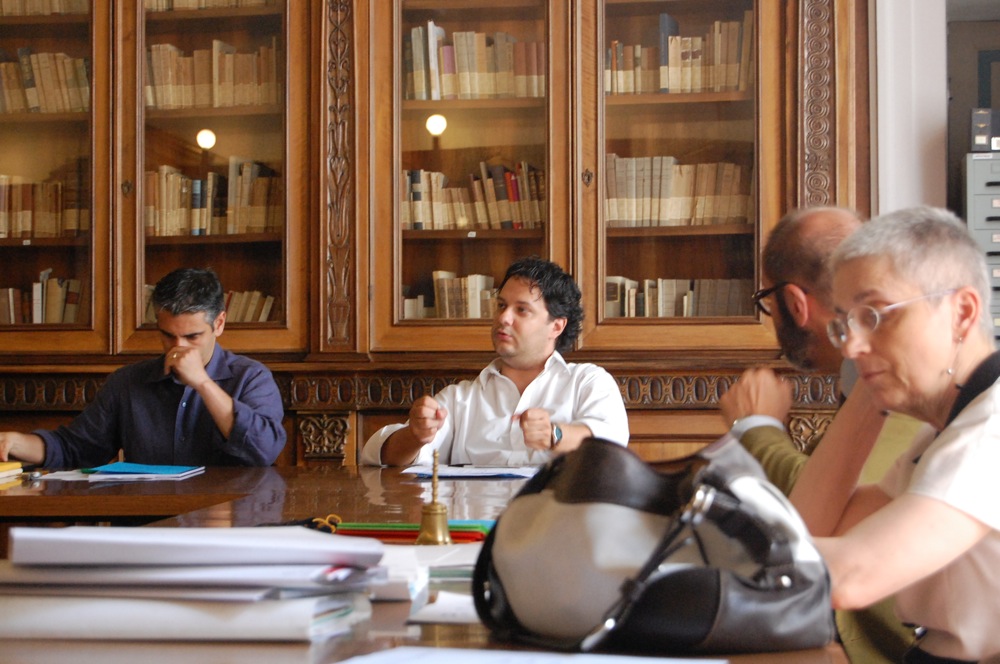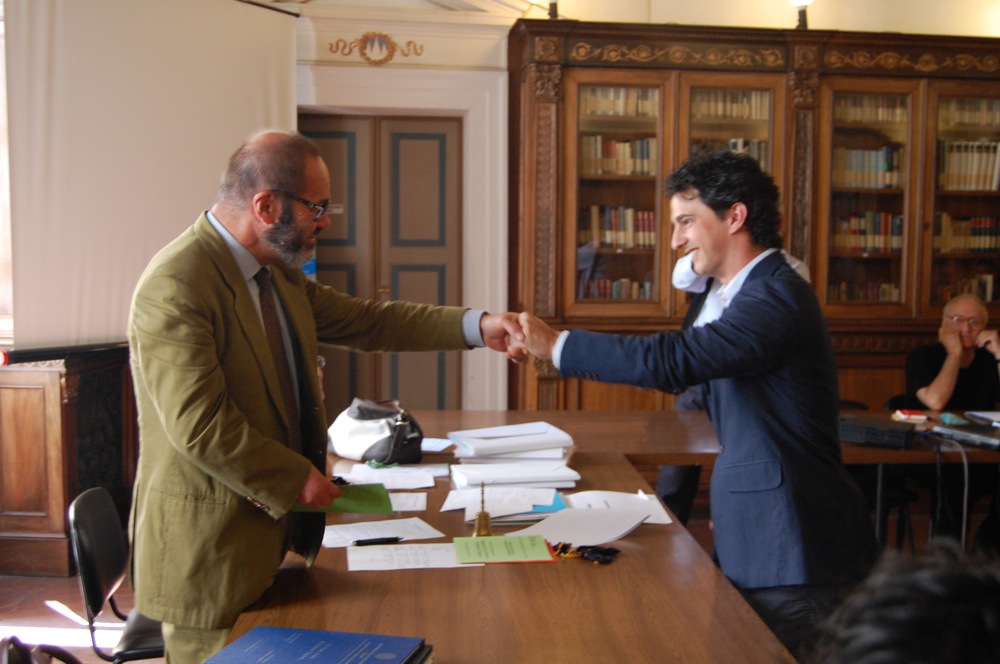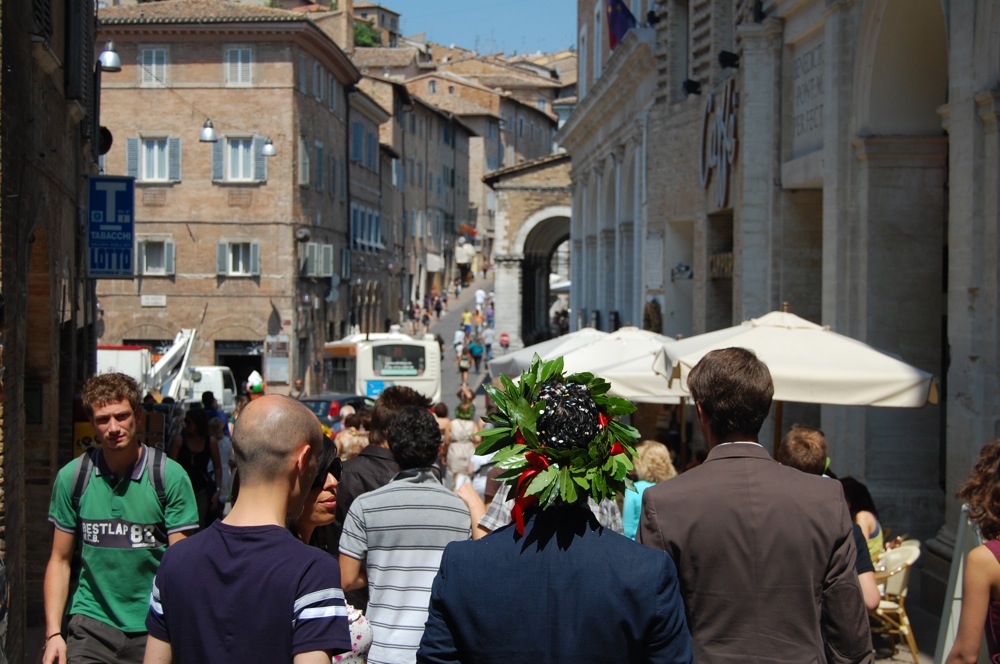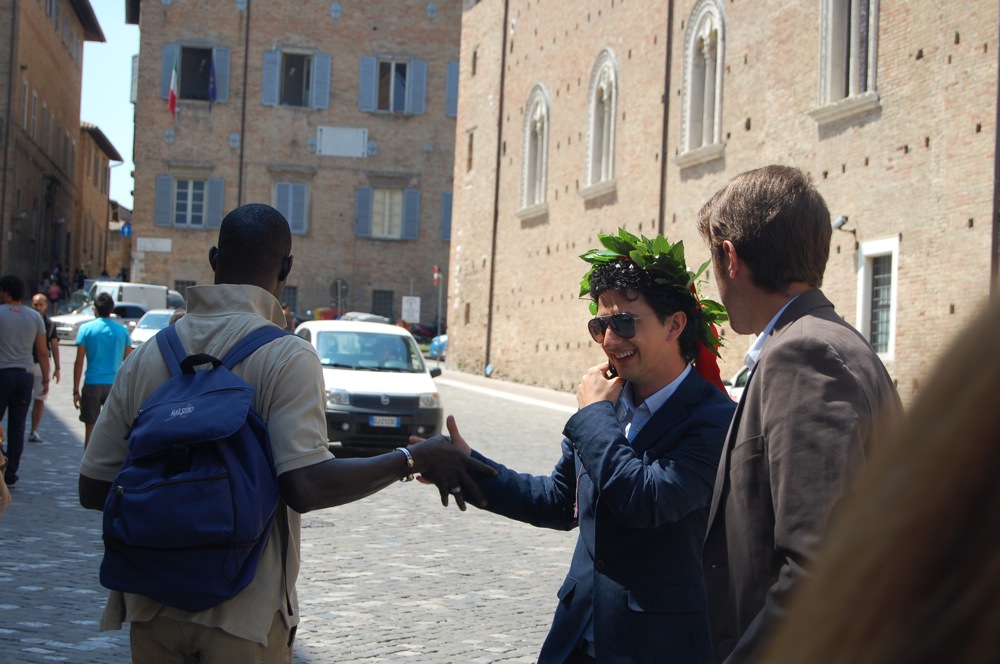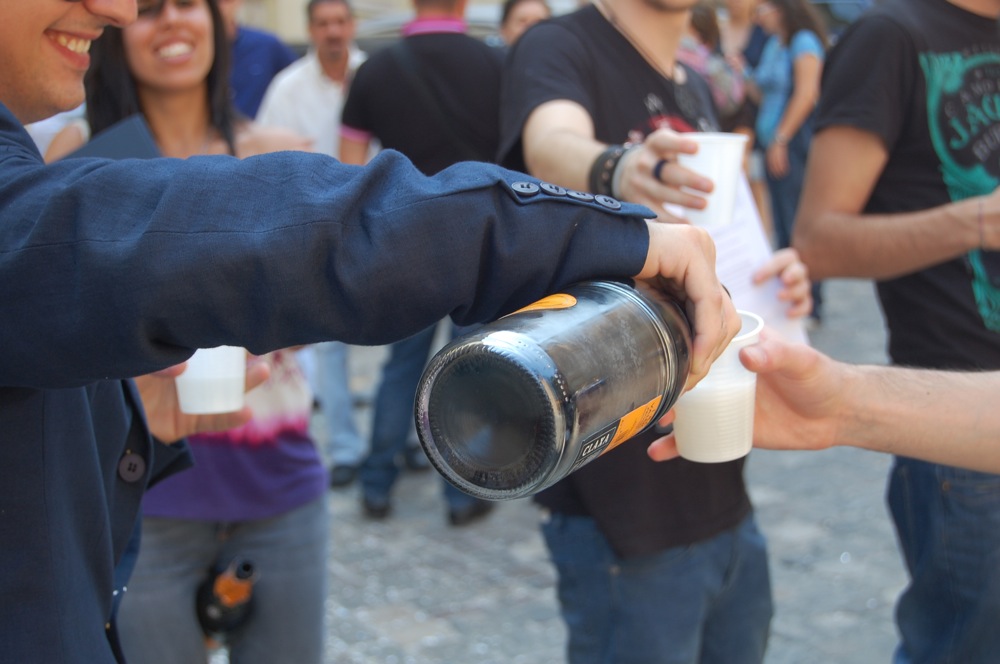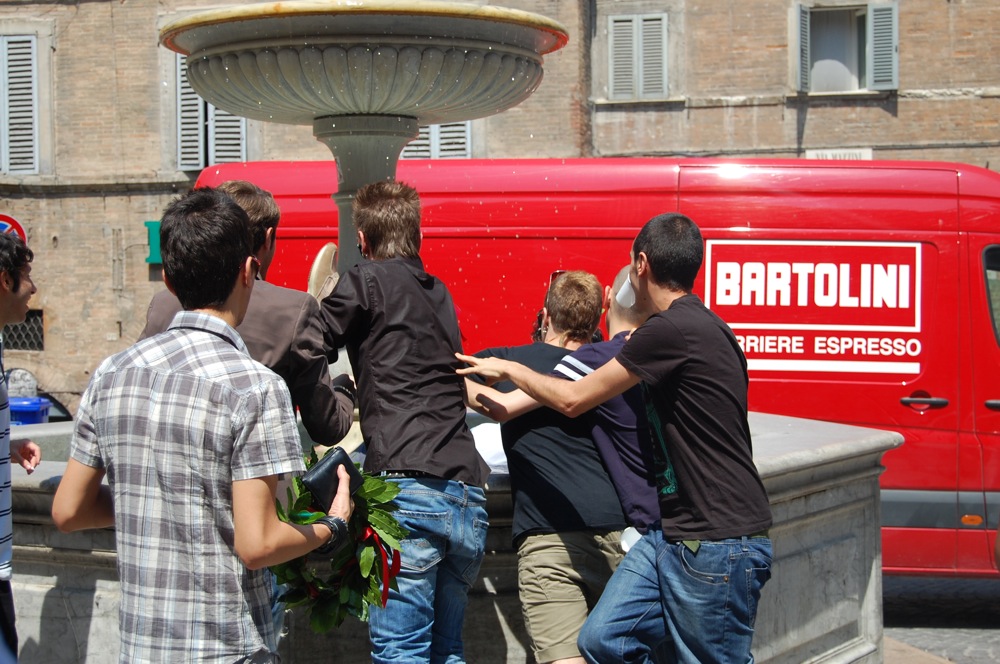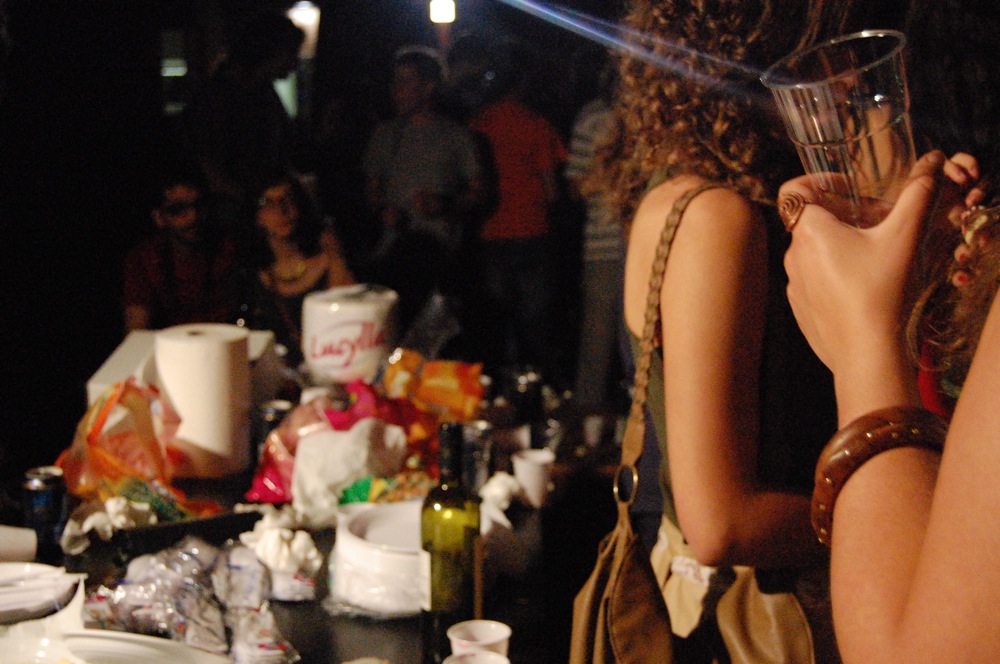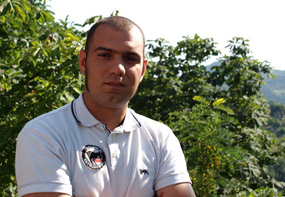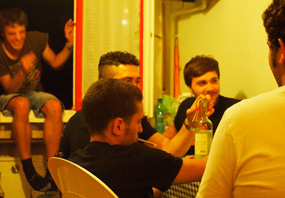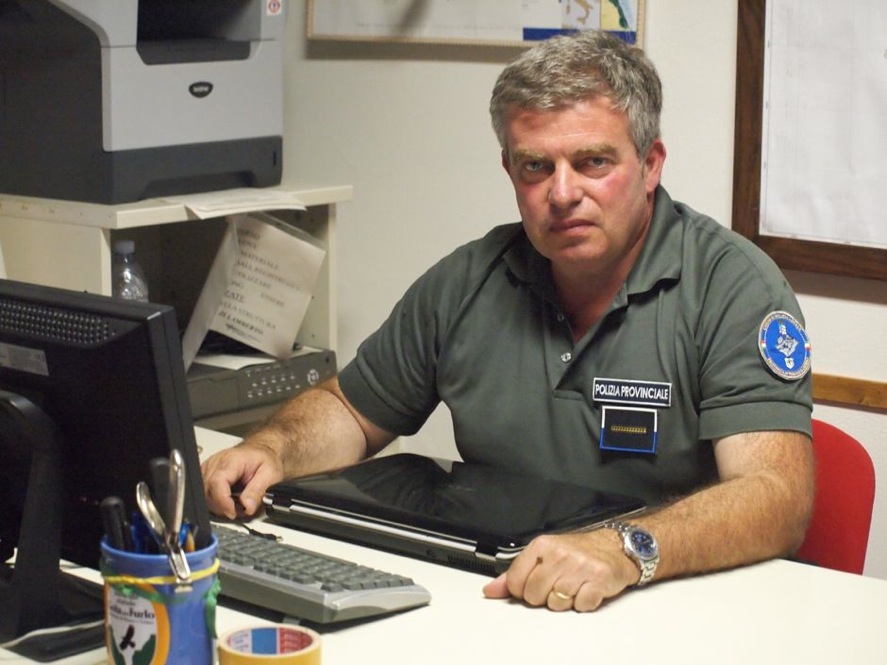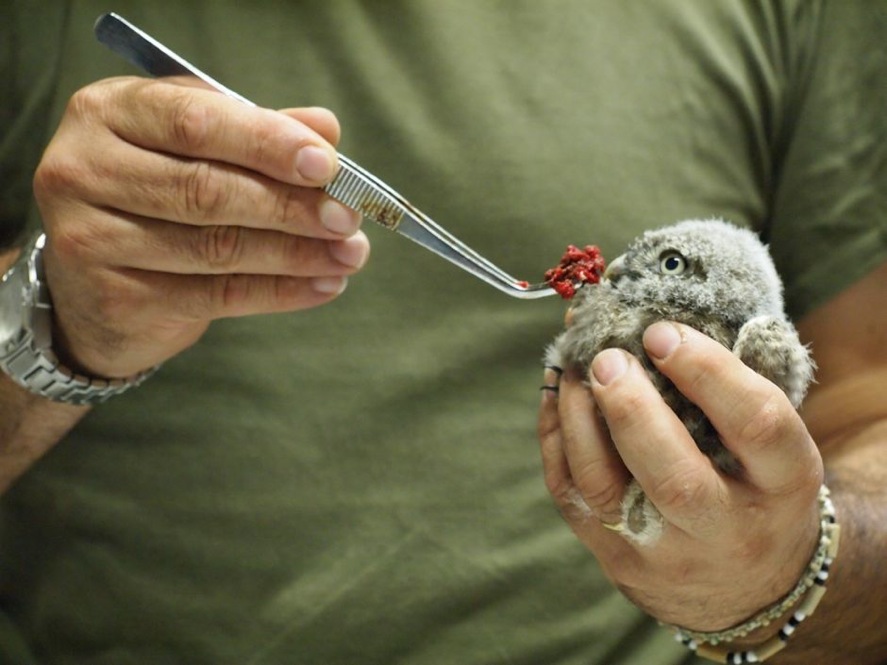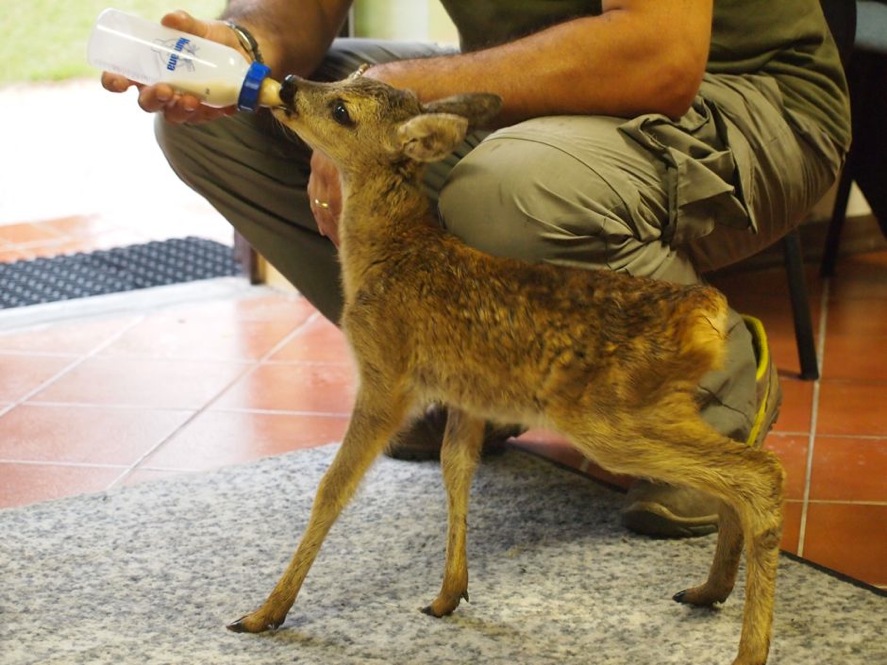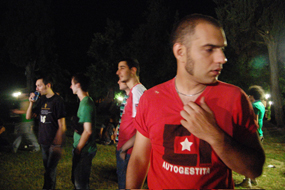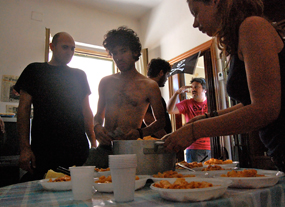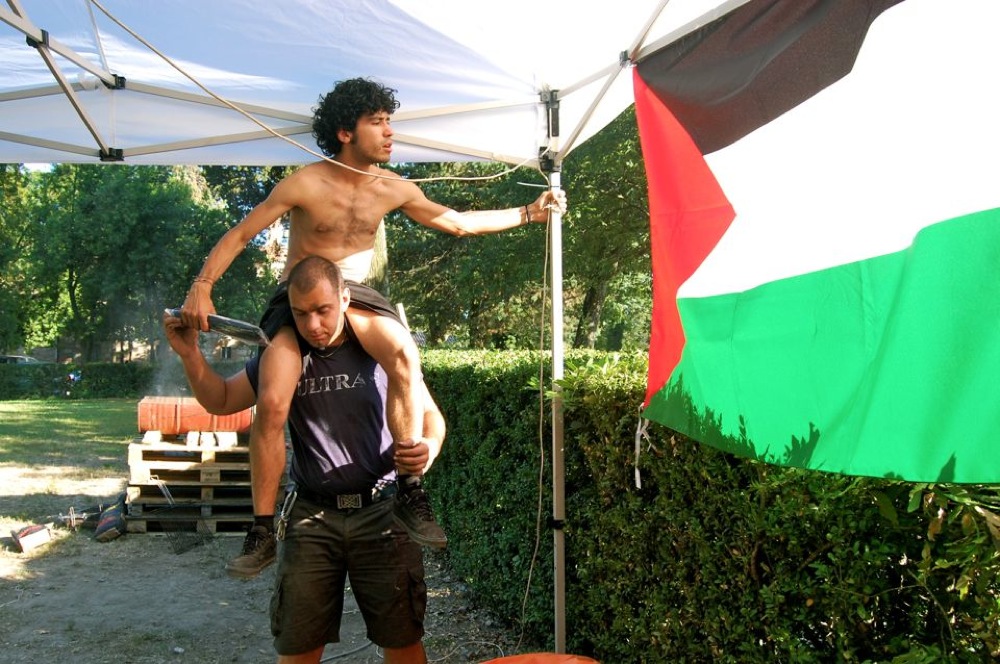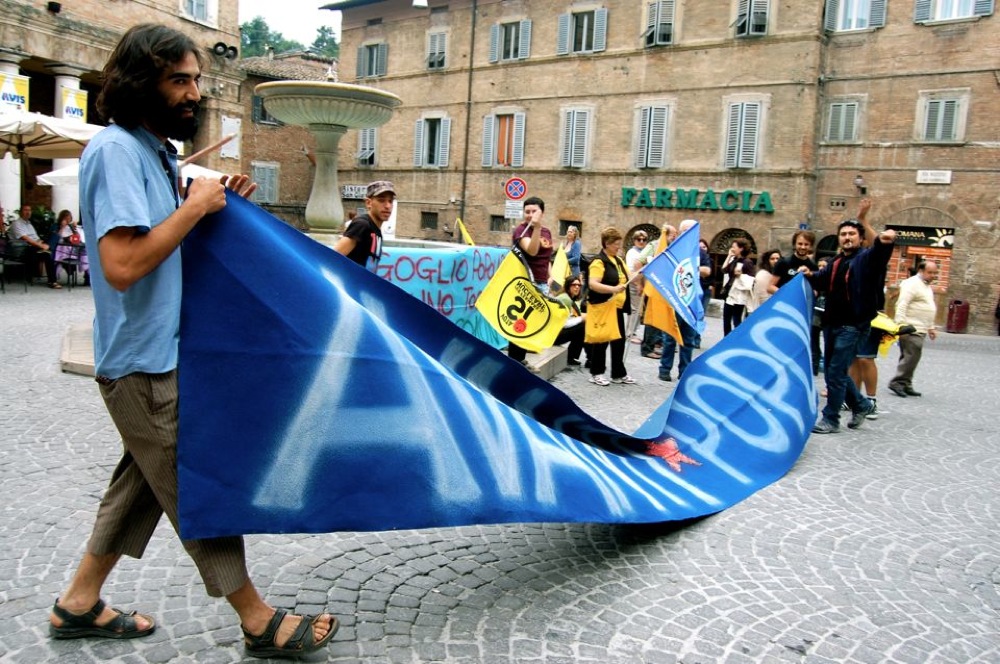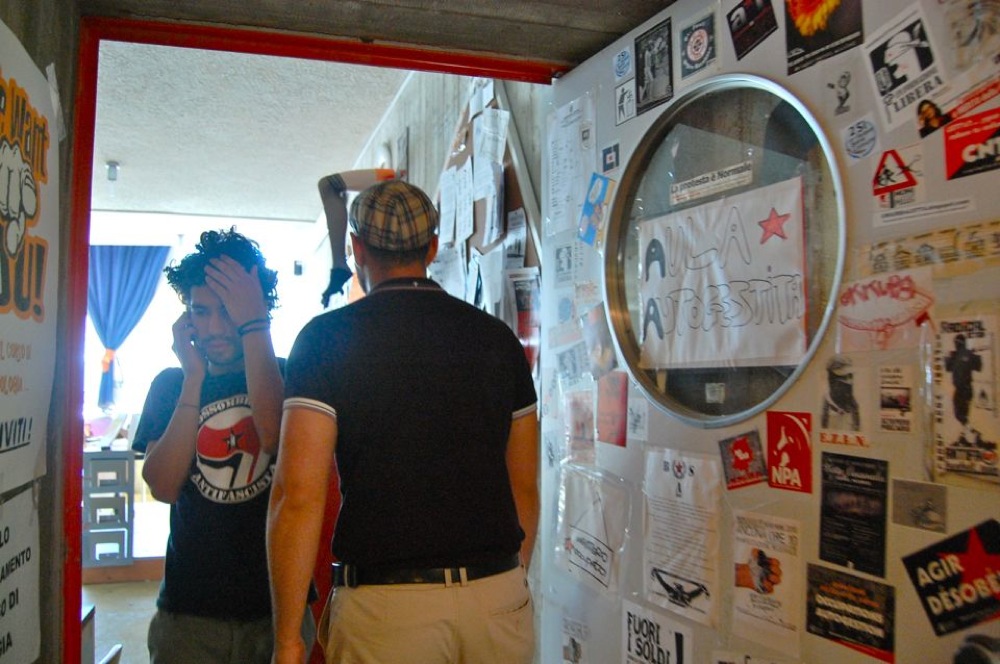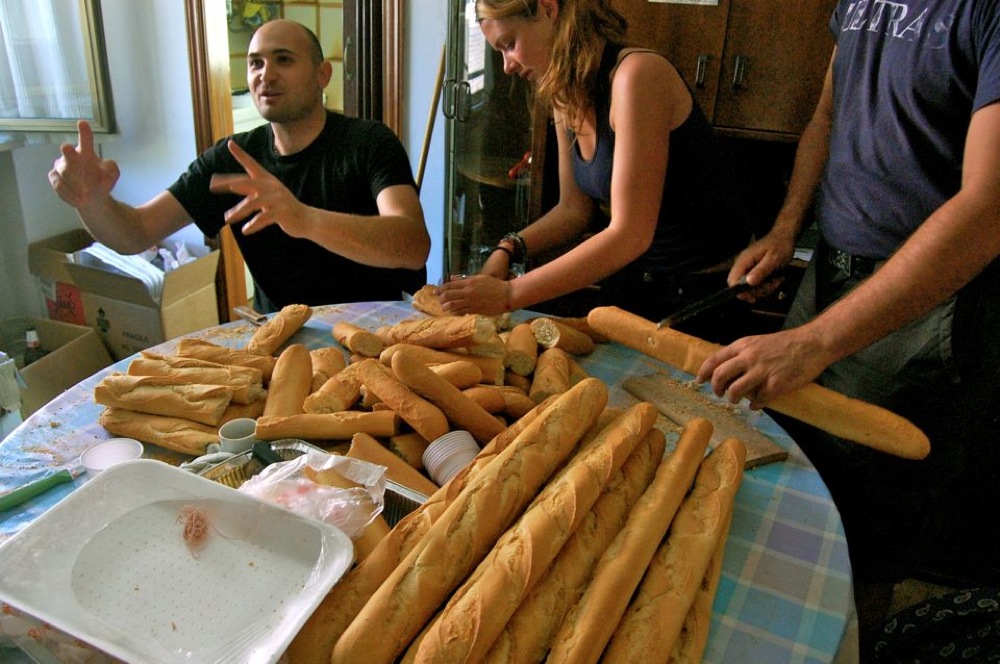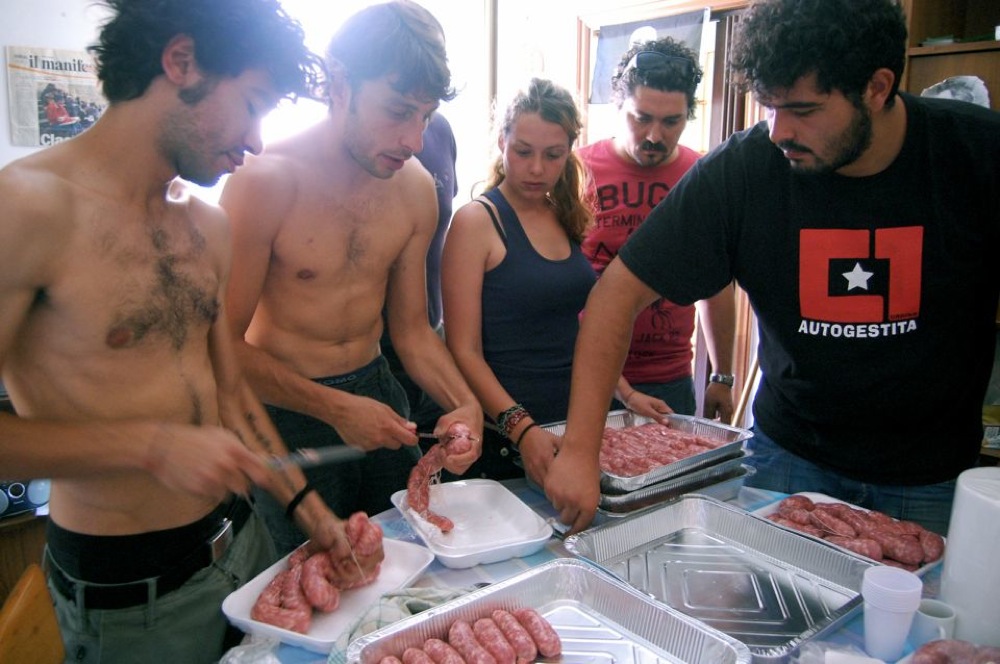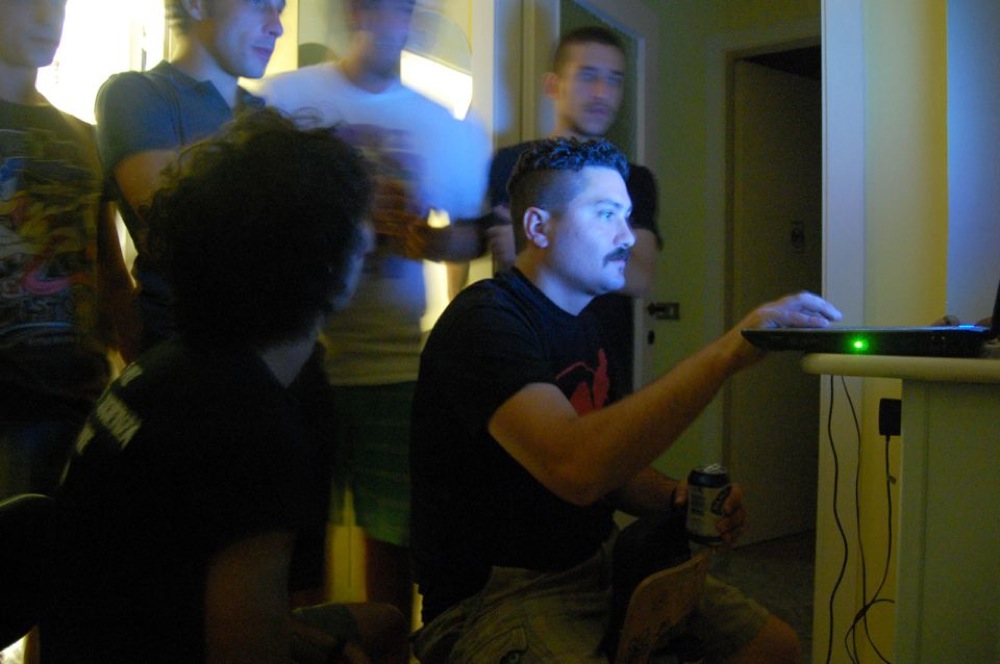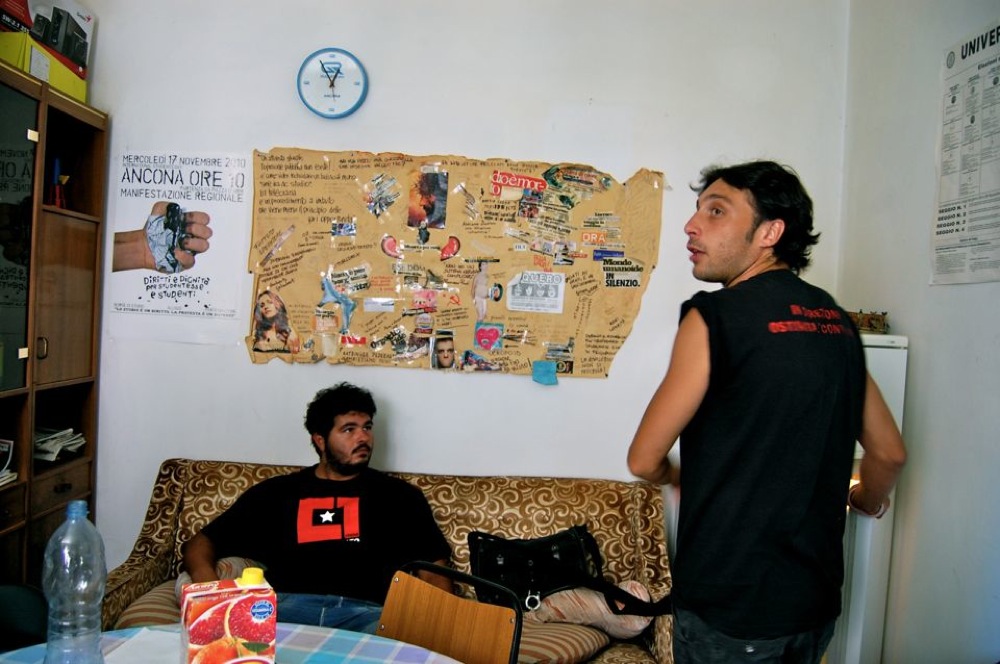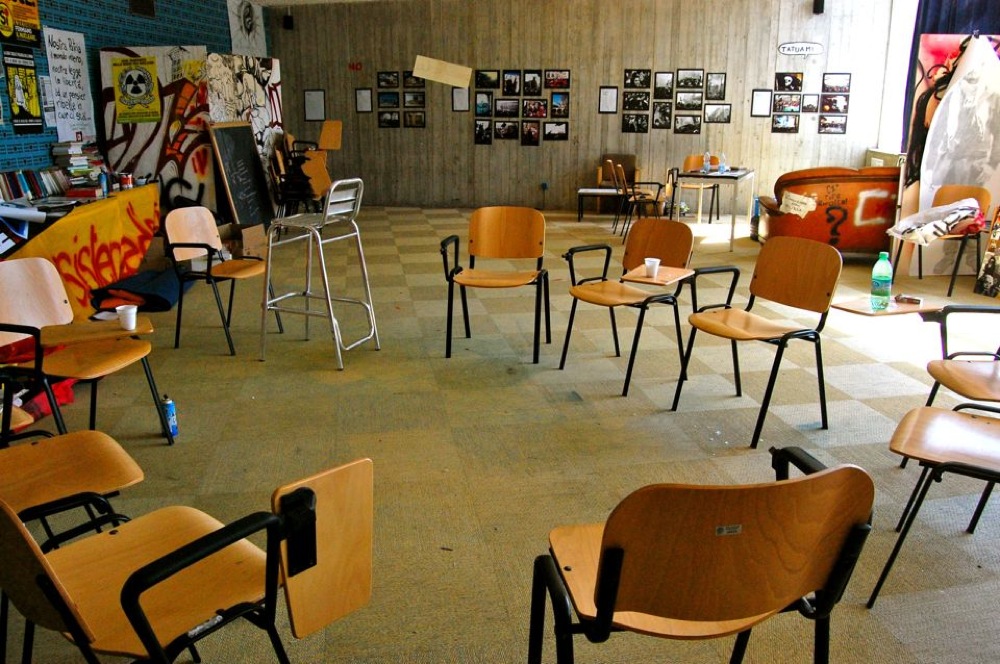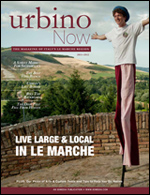University graduations in this old city are all about the individual student. In one fell swoop they take a final exam, graduate wearing a corona of live laurel and are doused in Champagne.
URBINO, Italy – The piazza was already pulsing with energy from newly graduated students as Pasquale Massaro’s brother and closest friends got off the bus and began the walk to the college of languages where Massaro would be taking his final test in the University of Urbino.
They arrived in the waiting room where Massaro and the rest of his family and friends were already waiting. The atmosphere was excited, as if “Paky” Massaro had already passed his exam. Despite the high stakes of the exam, only a few short minutes away, Massaro showed little, if any fear. He radiated confidence and pride. After a little while, they were led into the testing room where Massaro took center stage in front of a panel of professors while his entourage sat in chairs set up in the back of the room to watch the exam.
Graduations ceremonies in Italy are quite different from those in the States. Instead of a painfully long and scripted procession with the entire class lined up to receive diplomas, the students schedule individual times with the commissioner of their department when they will take their final exam, delivered orally, then if they pass, will be awarded their diplomas on the spot and are free to leave without having to listen to any longwinded speeches.
I feel like you have no more problems, so, so happy! But I feel also quite strange because I’ve finished the university. I should find a job and you know, it’s difficult here in Italy.
To receive his degree in language and foreign literature, Massaro was to engage two of the professors in a discussion concerning the differences between the type of Spanish spoken in Argentina and that which is spoken in Spain. He was undoubtedly well prepared as he dominated the discussion and any trepidation he may have had quickly vanished. His voice grew stronger with every word, aided by the constant nods of agreement from the professors.
After about 10 minutes, the professors seemed satisfied and asked Massaro and company to leave the room as they reviewed their notes. A few minutes later, the company was ushered back in and Massaro was presented with his diploma as he shook the commissioner’s hand. His family and friends erupted into applause and everyone offered their congratulations.
The celebrations quickly spilled out onto Via Veneto, bottles of champagne were popped and Paky was showered in confetti as he donned his laurel crown. He ripped off individual leaves and gave them to all present, symbolizing good luck. The party began making its way down the street towards the town square, with Massaro’s friends yelling the lyrics to the unofficial graduation song at the top of their lungs, “Dottore, dottore, dottore del buco del eu culo, vaffancu, vaffancu,” which is not a very old tradition here in Urbino. The younger crowds seemed to have created its vulgar lyrics.
“I feel like you have no more problems,” exclaimed Massaro, “so, so happy! But I feel also quite strange because I’ve finished the university. I should find a job and you know, it’s difficult here in Italy.”
As they arrived in the town square, Massaro’s group did a great job of making the biggest scene possible, yelling and spraying champagne everywhere and finally throwing the newly graduated Paky into the fountain, a traditional practice here in Urbino until the mayor had it banned. But Paky’s friends were far too caught up in the moment to recognize the rules.
Slideshow (By Catherine Threlkeld)
Click on Image to Show in Lightbox.
Slideshow (By Jared Carpenter)
Click on Image to Show in Lightbox.

